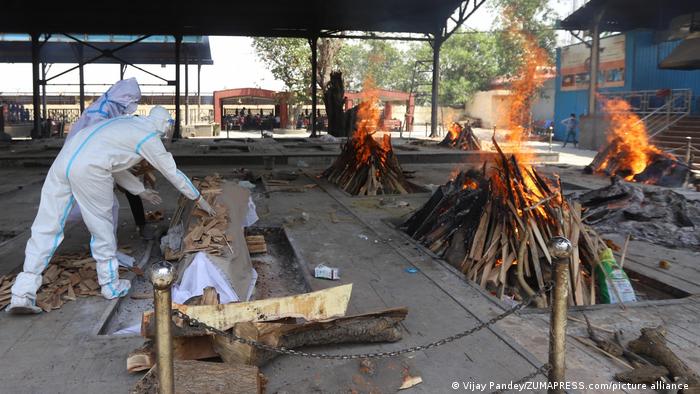‘It could be worse. You could be waiting for a doctor in an Indian hospital with patients gasping all around you.’
This was a friend – a real friend – on Facebook Messenger last Saturday. An Australian, he’d made a home in Tiruvannamalai, South India, twenty years ago. And when Covid hit he’d decided to stay and ride it out.
I was also keeping up my end of a text conversation with the Mechanic. He’d left in the dark that morning and driven eight hours north-west to take part in the Mudgee Classic bicycle ride the next day. The ride was 120 kilometres, longer than he’d ridden before, and now he was considering his race-eve dinner. There was a Mexican restaurant. We discussed bean enchiladas.
I was conducting both conversations from the waiting area of Casualty at Bega Hospital. On the big TV screen were images of Covid-stricken India: patients sharing hospital beds, top-to-toe; anguished families paying exorbitant prices for cylinders of oxygen; metro train platforms packed with migrant workers whose jobs no longer existed, trying to get home to their rural villages and taking the virus with them.
I was in Casualty because I’d twisted my foot falling off a chair – a chair I use to scoot around the kitchen. It’s quite a tall chair, it’s on casters, and … ah, forget the details. The expression ‘arse over tit’ comes to mind.
It was Saturday afternoon so there was a constant procession of parents bringing in kids with sporting injuries. A wall of big, fit, sullen teenagers in various team colours, in hospital-supply wheelchairs. Parents wordlessly thumbing their devices. Another mum playing a game on her phone, softly rocking herself back and forth as her phone chimed and jangled, her angelic, blonde child, strapped into a custom wheelchair, emitting volleys of grunts.
On the big screen, shell-shocked Indian families queuing outside a crematorium with shrouded bodies on flower-strewn litters. Intensive care staff wearing minimal PPE, desperately pummelling the chest of yet another non-responsive patient. Meanwhile, my friend in Tiruvannamalai and I discuss the relative drawbacks of bone, tendon and ligament injuries in the foot.
By late afternoon the Mechanic was texting again. The Mexican restaurant was booked out. He was considering the pub: fish and chips. We didn’t talk about my foot or Casualty because he was oblivious to the whole incident. If he’d known, I feared he would have come straight home, and this was his first big ride since 2019 that hadn’t been cancelled due to Covid or weather. My dear neighbour John, who drove me to the hospital, was sworn to secrecy.
The waiting room was pretty quiet now so I chanced a voice call. Immediately the cherub in the custom wheelchair set up a series of loud, demanding grunts and I cupped the phone and raised my voice. It worked. The Mechanic suspected nothing. I thrilled with the subterfuge.
On the big screen: makeshift mass cremation grounds in Delhi carparks and vacant lots, flames spouting from funeral pyres tended by workers in hazmat suits. It looked like Armageddon.
At Bega Hospital, a chirpy nurse met each new arrival, checked their temperature and asked the Covid questions we’re all familiar with now. None had travelled overseas or to an Australian hotspot; none had had contact with a confirmed positive case. One had mild cold and flu symptoms anyway, and was ushered back outside to wait on a chair there.
‘It could be worse. You could be waiting for a doctor in an Indian hospital with patients gasping all around you.’ Indeed.
